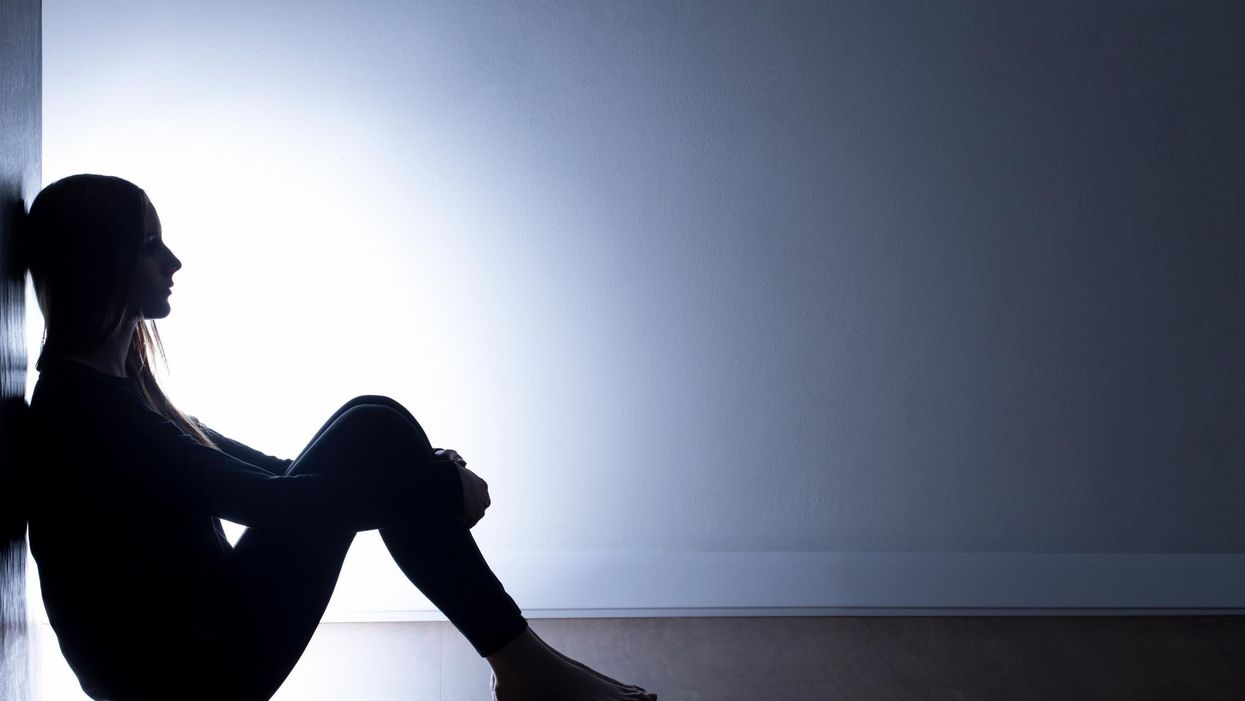News
Harriet Marsden
May 07, 2017

Picture:
istock / KatarzynaBialasiewicz
The rising rates of depression, anxiety and suicide in the UK are extremely worrying.
Current health secretary Jeremy Hunt appeared on today's Andrew Marr Show to discuss the Conservative Party's plans to combat the issue.
Hunt explained that Theresa May has a "social mission" to improve care for those suffering from mental illness, and promised more funding for the country's mental health services.
Hunt also promised 10,000 more mental health professionals, which prompted Marr to question why the Conservative party had already gotten rid of 6,000.
Awkard.
Whether that funding appears or not, one of the most valuable ways of tackling mental illness is by raising awareness, thus moving towards erasing the stigma.
Symptoms of severe clinical depression and suicidal tendency tend to be better known, due to reports in the media and portrayals in the arts. They also tend to be harder to hide or ignore.
But it's also important to talk about early warning signs and more subtle symptoms, that may be more easily overlooked..
Here are seven subtle signs that could indicate depression...
1. Pain
Depression and pain have some brain chemicals in common, which means depression can change your sensitivity to pain.
Therefore, unexplained physical ailments, such as headaches, stomach or back pain can be early warning signs of poor mental health.
Dr. John Zajecka, psychiatry professor at Rush University Medical Centre, explains:
The pain is very real and some people may only see their doctors for vague physical pains and never get a diagnosis of depression when that’s the real problem.
2. Sleep pattern
Whether you're finding it more difficult to fall asleep, feel restless during the night or simply can't get up in the morning, changes in your normal sleep routine could indicate depression.
According to Schwartz:
Sleep makes people function well, so the real problem is that for a depressed person, sleep isn't restorative, and they aren't refreshed or rejuvenated.
3. Libido
A loss in sexual drive can be a subtle sign of depression, particularly because a drop in libido is so commonly associated with other factors such as stress, tiredness or increased comfort with a partner.
Russell Stambaugh, sex therapist in Ann Arbor, Michegan and spokesperson for the American Association of Sexuality Educators, Counsellors and Therapists, is quoted here as saying:
In depression, the chemical soup often isn’t right. The brain is important for sexuality because of the chemistry, but it’s also important for ideas.
It helps how you experience pleasure and how you define it.
4. Confusion
Slow thinking, forgetfulness and inability to make decisions are all normal human traits, but could also be subtle signs of a depressive episode.
Dr Zajecka says it's important to be conscious of how you're functioning cognitively.
Sometimes people can't sit down for 30 minutes and watch TV or read or do anything that requires some focus.
5. Overthinking / worrying
The clinical term is 'rumination': excessive worrying and over-thinking your entire life, which can cause low self-worth and self-esteem.
Dr Zajecka explains that rumination can cause you to become caught ina negative feedback loop of replaying situations or looking at neutral situations in a negative way.
A little self-reflection is good, but with rumination someone can become very self-absorbed and they talk about the same things over and over again, which becomes tough on the people around them.
6. Weight and food
The start of a depressive episode can be accompanied by a weight gain or weight loss.
Your eating pattern may also change - overeating or loss of interest in food can indicate that depression is affecting the part of the brain linked to pleasure and appetite control.
Psychiatry professor and director of the Mood Disorders Program at University Hospitals Cleveland Medical Centre, Dr Joseph Calabrese, says:
Most people enjoy a good meal, and those who are depressed lose energy and interest, even in eating.
7. Social withdrawal and expressiveness
Previously sociable people who begin to pull back from activities and engagements could be starting to suffer from depression.
Isolation and social withdrawal are common depressive symptoms. You should also look out for "flat" or "blunted" facial appearance.
Depression can cause facial muscles to be less active resulting in a decrease in emotional expression.
Depression is treatable, for example with psychotherapy, cognitive behavioural therapy (CBT) or medication.
If you feel you are suffering from symptoms of depression, you can:
- Reach out to friends or family
- Make an appointment with your GP
- Complete a self-referral form for therapy (if it is available in your area)
- Call the Samaritans or other helpline
Zajecka says:
Depression is very common and there is good help. A person doesn't need to suffer.
They really aren't alone.
More: Two pictures that show the reality of depression
More: The simple questions that can help people with depression
Top 100
The Conversation (0)













